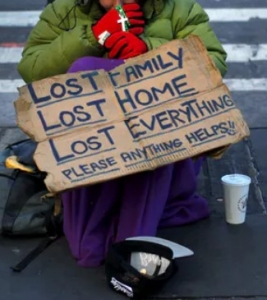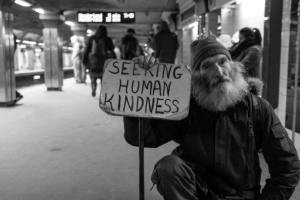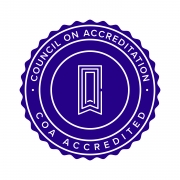Homelessness Action Week:
Intensive Case Management
Our Story
What is Homelessness?
A simple definition of homelessness is the absence of having a place to live. However, when you look a bit deeper, homelessness can include people who have no physical shelter; are staying ‘outside’, in alleys, doorways, parkades, parks and vehicles; are staying temporarily in emergency shelters for the homeless, transition houses for women and children fleeing violence, and safe houses for youth; have no fixed address and were staying temporarily in a hospital, jail or detox facility; or are staying temporarily at someone else’s place (couch surfing).
According the last homeless count in 2017, there were 206 people who identified as being homeless in Langley, a number that has grown by 50% since 2011. While the reasons for being homeless are multi-faceted and unique for each person, they all have experienced some form of trauma in their lives whether it be through divorce, job loss, injury, abuse, intergenerational or other. When a person has little to no social networks or financial systems to rely on, the fragility of the situation quickly results in a downward spiral of survival. Homelessness has no social, ethnic or economic boundaries. Homelessness is not a choice!
Intensive Case Management
One of the founding principles of the Intensive Case Management Team is ‘Housing First Strategy’. Housing First Strategy involves providing individuals with accommodation, a safe place to live which then results in stability.
Having a safe place to live allows the team to address issues such as mental health, substance use addictions, physical health, having regular meals along with providing other much needed support services.
Voices from our Team
Karen (Program Manager) said it’s the end result of trauma. A person becomes disenfranchised within their community and they’re not connected to family or neighbours. The person slowly ends up in a position where they have no place to call home and no help received.
Anita (Addictions Counsellor) added to this by voicing the topic of a bad breakup that can lead to depression. This creates an endless cycle of an inability to make good decisions. The person can’t find work, falls behind on rent, and the life they knew slowly dwindles away no matter how tightly they hold on. When struggling to make ends meet, trying to make the best choices is a hefty task.
Shelley (Case Manager and Fraser Health Liaison to the Langley Mental Health Center) noted that inexpensive rentals get demolished to build bigger condos. The tenants living there can no longer afford their rentals, especially if they’re on a fixed income.
Rick (Housing Procurement Specialist from Stepping Stone Community Services) says that there is help out there, but it doesn’t always line up with the amount of need. The homeless population keeps growing, so the services can’t always fill the need.
Langley Community Services Society is a grassroots community organization that has been serving the residents of the Township and City of Langley since 1971. Did you know that in 2022, LCSS will celebrate 50 years?
Community Impact
RICHARD’S STORY
Hi, my name is Richard. I’m a hardworking man who lived in the same place for 31 years taking care of five kids on my own. My whole life turned upside down when I spent months in the hospital sick as a dog. I lost my job, and every cent was gone after a month. To say I was in a bad place would be an understatement.
Once out of the hospital, I knew I’d be on the streets. I was still sick and not ready to leave. A care worker there gave me phone numbers to the shelters. Over the next five years, I moved in and out of shelters. I never felt like I could get ahead. I was struggling and tired of working with new people every time I changed shelters. Hope was gone.
One day, some friends told me about ICMT at the Gateway of Hope. I thought it wouldn’t hurt to check it out. I just didn’t want to get the run around. I met with the team and thought yeah, they seem to be all right. The next day, the worker talked to me about my goals and plans. I felt happy that maybe things will actually be on track for me for once.
This great lady who was my worker helped me a lot. She laid out all my goals and plans for me. I knew what I needed to do first, and she was on top of everything. She helped me get all my proper IDs done. My health still wasn’t good, so she drove me to all of my doctor’s appointments.
I couldn’t believe how this team of people never gave up on me. You have to show them you’re doing your part too and working with the ICMT was the best thing I’ve done in my whole five years of being homeless. No one worked as hard for me as my worker finding me a place to live. For seven months I’ve been on my own with my own place. That’s what I call getting it done!
Thanks to all the ICM team for helping with everything.
I have my life back!
What Don’t We Do?
When asked what services the ICMT offers, laughter filled the room as the better question was: what don’t we do?
ICMT provides:
- Housing/ Medical/ Financial/ Legal support.
- Substance use counselling and treatment.
- Rent supplements.
- Life skills support and skill building (cooking, grocery shopping, banking etc.).
- Connection to community resources/ maintaining community integration.
- Health care (physical and mental).
- Goal building and achievement.
- Employment at a self-sustaining level.
- Keeping appointments related to incarceration, hospital, and other crisis services.
Shawneen’s Story
I started seeing the Team about 2 1/2 years ago. At that time, I was living in my van and I was a daily Meth Addict.
Since working with Anita, Ashley, Melissa, Rick, I have found hope. With their encouragement, I have been able to complete a treatment program and have successfully maintained an apartment. I’ve been clean now for 9 months and housed for 2 years.
I could not have been successful at acquiring my sobriety, housing, and sense of self-esteem without the constant, deeply caring support of the ICMT. I could not have done any of this without them.
Thank you,
Shawneen
ICMT: Who are they?
The team includes dedicated staff members from a variety of backgrounds and experience: Case Managers, Nurses, a Peer Support Worker, an Addictions Specialist, a Housing Specialist and a Psychiatrist. Their aim is to improve and stabilize lives of those that are the most vulnerable. They strive to minimize crisis/emergency incidents with the goal of transitioning people to programs in the community when they are ready.
Serving over one hundred clients to date, many times the team work out of their cars meeting clients at coffee shops, the client’s camp, or at community drop-ins. They travel within Langley, Aldergrove, Cloverdale, White Rock, and Abbotsford. It’s not often that they work outside of their catchment in Langley, but sometimes the situation calls for it. If someone is working with the ICMT and finds housing outside of Langley, they will continue to provide services until the person is able to connect with other services in their area.
ICMT is comprised of the Fraser Health Authority, Stepping Stone Community Services Society and Langley Community Services Society employees and based out of the Salvation Army Gateway of Hope location. We will soon be operating out of Creek Stone Place.
Who does ICMT Help?
They engage with all clients who meet the eligibility requirements:
- 19 years or older.
- Identify as being part of the Langley community.
- Homeless (chronic or episodic).
- Substance abuse issues and acknowledging that fact.
- Have multiple goals they would like support in working on
This is not a limiting list, but the main thing is that the person has more barriers than most and must be an adult.
The ICMT program is voluntary and a person can self-refer or be referred by many other agencies in the community including the shelter staff at Gateway of Hope (which is the current office of this ICM team). The team works every day, twelve hours a day, to reduce barriers to service and provide intensive support for their clients. Many of their current clients have successful housing placements.
Celebrating Victories One Step at a Time!
While not every success story involves achieving perfect health and quality of life. Some victories are as simple as continuing to work with the ICMT. Every success is celebrated, no matter how small.
Shelley mentioned someone that still worked with their team, who may move on soon. He was homeless for a long time, accessing shelters for many years, and in poor health. Then, he found housing, work, and improved health with this new stability. Isn’t that worth celebrating?







